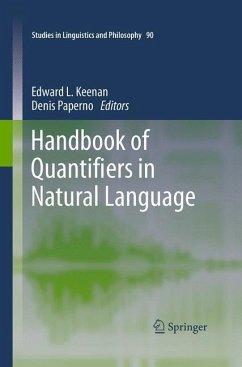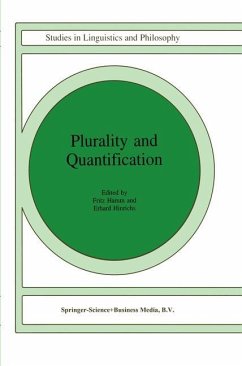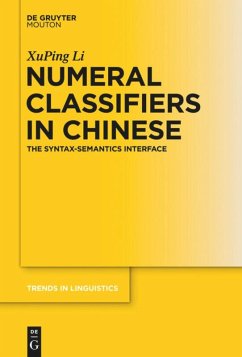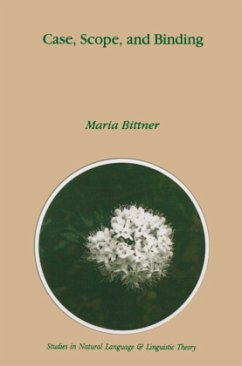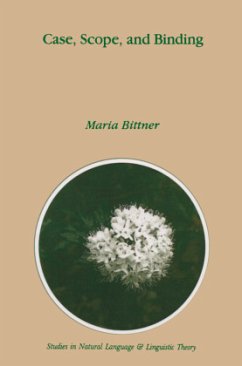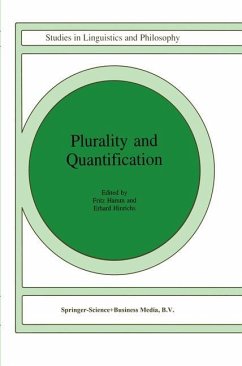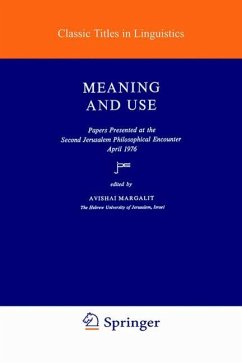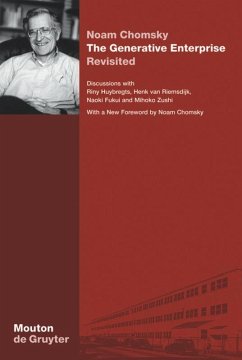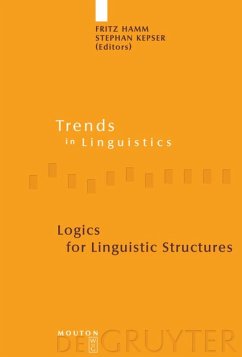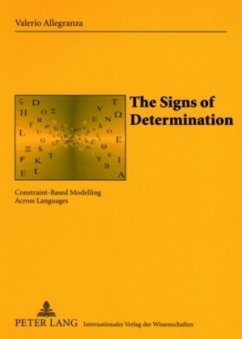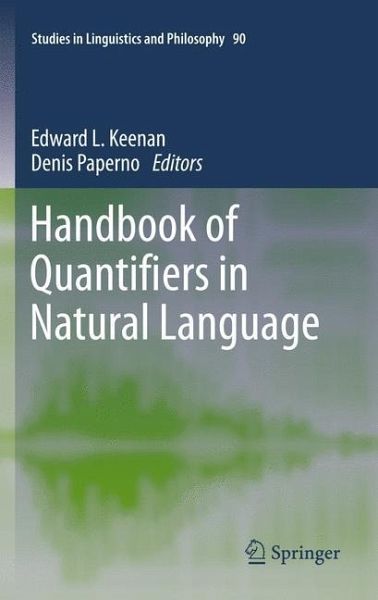
Handbook of Quantifiers in Natural Language

PAYBACK Punkte
171 °P sammeln!
Covering a strikingly diverse range of languages from 12 linguistic families, this handbook is based on responses to a questionnaire constructed by the editors. Focusing on the formation, distribution and semantic interpretation of quantificational expressions, the book explores 17 languages including German, Italian, Russian, Mandarin Chinese, Malagasy, Hebrew, Pima, Basque, and more. The language data sets enable detailed crosslinguistic comparison of numerous features. These include semantic classes of quantifiers (generalized existential, generalized universal, proportional, partitive), sy...
Covering a strikingly diverse range of languages from 12 linguistic families, this handbook is based on responses to a questionnaire constructed by the editors. Focusing on the formation, distribution and semantic interpretation of quantificational expressions, the book explores 17 languages including German, Italian, Russian, Mandarin Chinese, Malagasy, Hebrew, Pima, Basque, and more. The language data sets enable detailed crosslinguistic comparison of numerous features. These include semantic classes of quantifiers (generalized existential, generalized universal, proportional, partitive), syntactically complex quantifiers (intensive modification, Boolean compounding, exception phrases) and several others such as quantifier scope ambiguities, quantifier float, and binary quantifiers. Its theory-independent content extends earlier work by Matthewson (2008) and Bach et al. (1995), making this handbook suitable for linguists, semanticians, philosophers of language and logicians alike.




